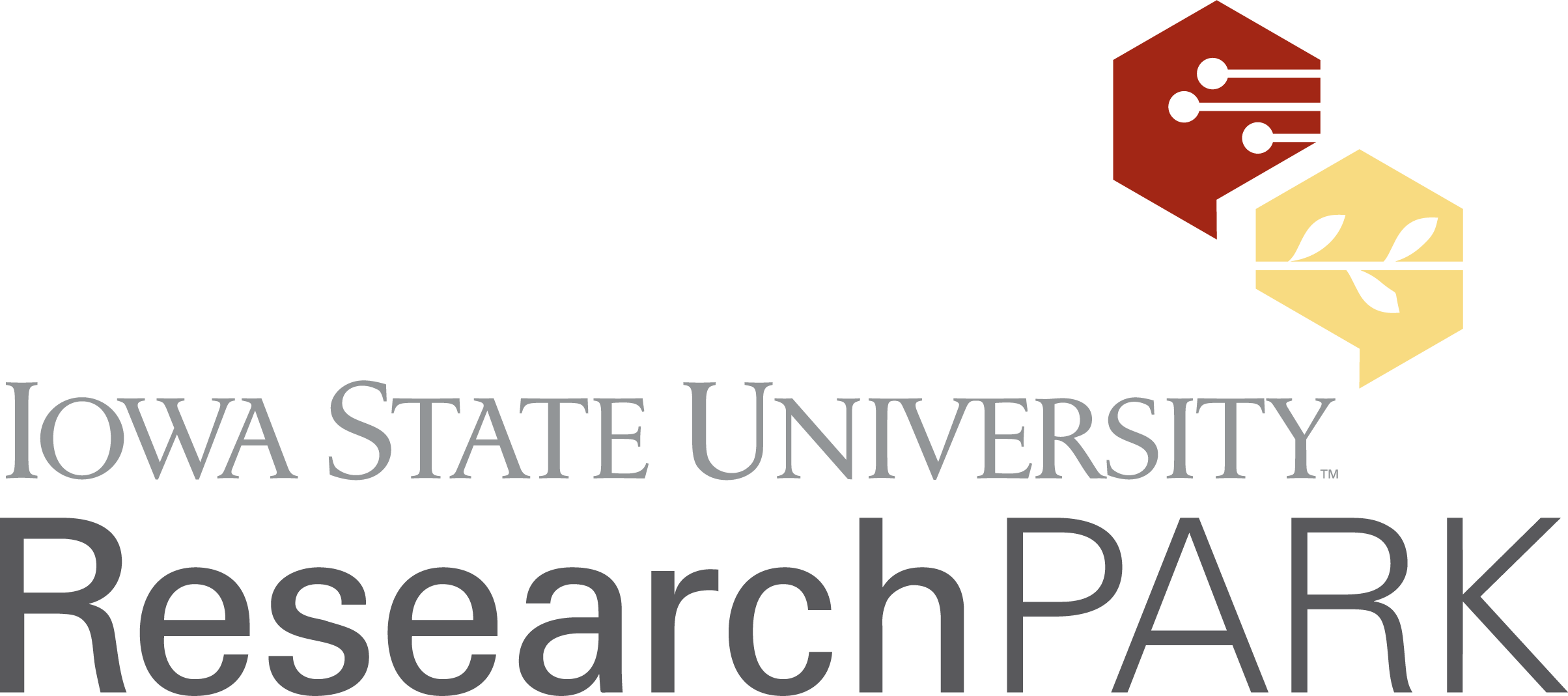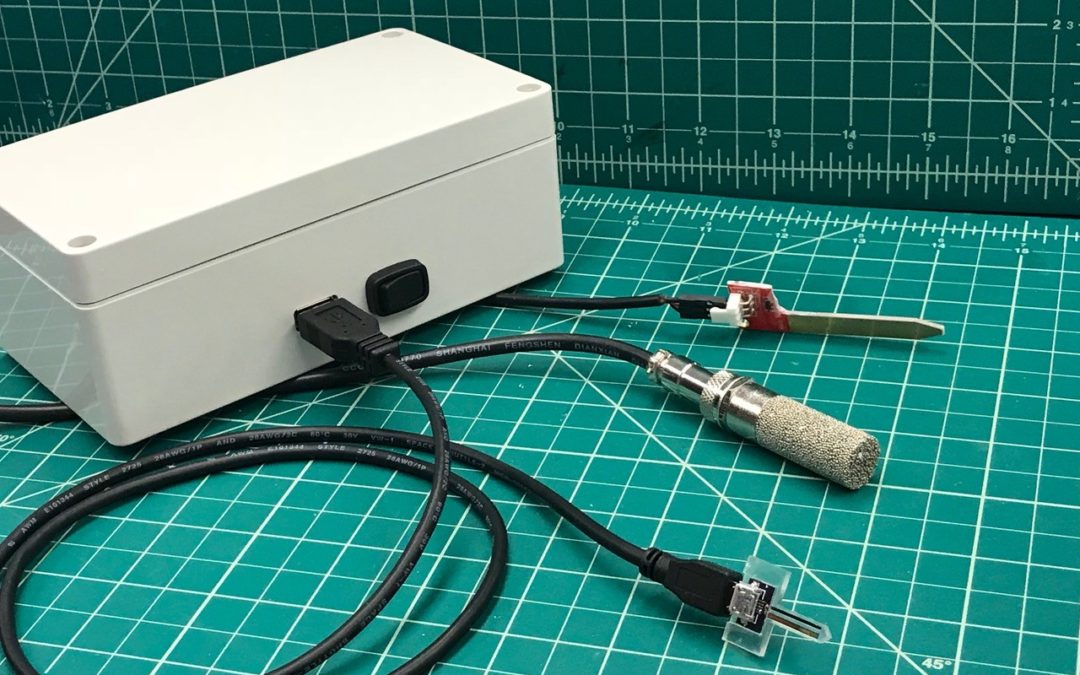EnGeniousAg, LLC is developing field-based nutrient sensors for crops, soils and water to improve agronomic management practices. A $100,000 grant from the U.S. Department of Agriculture’s National Institute of Food and Agriculture will allow the company to develop soil and water sensors that can instantaneously or continuously measure available soil nitrate concentrations and nitrate loss to tile drainage water. Photo courtesy: EnGeniousAg.
AMES, Iowa (July 30, 2019) – The Iowa State University Startup Factory today announced EnGeniousAg, LLC, has been awarded a Small Business Innovation Research (SBIR) grant from the U.S. Department of Agriculture’s National Institute of Food and Agriculture (NIFA) for $100,000 to develop low-cost, high-specificity nitrate sensors.
Nitrate is an essential nutrient for crop growth; however, its levels can vary from one location to another within a field, creating nutrient management challenges. EnGeniousAg’s sensors can measure nitrate concentrations in plants, soil and water, providing data to improve farmer profitability and reduce environmental impacts. The grant will support research headed by Principal Investigator and EnGeniousAg Operations Manager Xinran Wang.
“With this Phase I project, EnGeniousAg aims to develop soil and water sensors that can instantaneously or continuously measure available nitrate concentrations in the soil and nitrate loss to tile drainage water,” Wang said. “Farmer consulting service providers will be able to use measurements from EnGeniousAg’s new soil nitrate sensors to improve fertilizer recommendations. Similarly, when used to measure nitrate in soil and drainage waters, these sensors can measure outcomes and help farmers identify fields that would benefit from more intensive nitrogen-management practices.”
Wang said successful nitrogen (N)-management can optimize crop yields, increase farmer profitability, and improve sustainability while minimizing nitrogen losses to the environment.
“After seed, nitrogen fertilizer is the second most costly farming input, yet it’s used with only 60% efficiency,” Wang said. “Each year, farmers lose over 2 billion pounds worth of N-fertilizer to the Mississippi River and other waterways, resulting in over $1 billion in wasted fertilizer, and which negatively impacts the environment.
“Surveys show farmers want to better manage N to maintain profits and reduce environmental effects. But farmers lack the data they need to make decisions. EnGeniousAg is dedicated to providing farmers with the data they need to better manage N fertilization.”
Wang said the ability to take real-time measurements will be a game-changer relative to current N-management practices.
“Our soil and water sensors will take the guesswork out of making nitrogen fertilizer application decisions. Decisions will no longer need to be based on generalized guidance for whole states and regions, or a few soil samples that require up to a week of laboratory processing before data are available to decision-makers. In contrast, EnGeniousAg’s sensors provide near-instantaneous results at high spatial resolution within farmer fields, thereby supporting precision agriculture.”
The NIFA-funded project will allow EnGeniousAg to improve the performance of their sensors and validate the feasibility of constructing sensors at scale. Specifically, as part of this project EnGeniousAg will work to overcome current limitations with ion-selective electrodes, including signal drift and non-target nutrient interference, and will also develop strategies to further reduce sensor cost.

EnGeniousAg is also developing sensors to measure nitrate concentrations inside of plants. “Developing similar nitrate sensors for soil and water involves several challenges that we will address during this project,” Wang said. “First, the typical range of nitrate concentrations in soil and water is much lower than in plants, so we’re working on increasing sensitivity for low concentration samples. The next challenge is working in ‘dirty environments.’ There’s a lot of ‘noise or interference’ in soil or water where the sensor itself might react to a lot of different ions that are not present in plants.
“Our project will focus on improving the materials used on the sensor, including an ion-specific membrane that surrounds the sensor that only lets in the nitrate ion we want to measure. This allows exquisite specificity–it’s one of the secret-sauces of our technology.”
Other projected outcomes include the rapid release of accumulated charges on the working electrode and developing antifouling technologies for sensor use in applications where long-term measurements are desired.
“Our goal is to develop sensors that are robust in the field, whether they are being used for instantaneous measurements by a farmer or crop consultant walking from field to field or left in tile drains for weeks or months,” Wang said. “It’s vital that we develop a mechanism to prevent any contaminates, such as algae, from interfering with the working electrode. We are also developing a combination of materials and structures that inhibit the formation of microbial biofilms on the sensor surface.
“And, lastly, we aim to develop and test a prototype sensor that can measure nitrate concentrations in a wide range of soil solutions, spanning a variety of soil types and crop management systems across Iowa and Nebraska.”
EnGeniousAg is a member of the Iowa State University Startup Factory’s fifth cohort. The Startup Factory is a 52-week intensive program at the Iowa State University Research Park that provides an avenue for students, faculty, staff, and community members to create technology-based, platform businesses. Entrepreneurs in the program receive formal training, resources, and access to a network of business mentors, advisors, counselors, and investors in two 26-week blocks: the first is a formal curriculum centered on business validation, while the second block is more customized to their individual business needs.
EnGeniousAg’s Phase I SBIR award also made the company eligible to apply for and, ultimately, be awarded a $25,000 Iowa Innovation Corporation (IICORP) grant match.
“We are grateful for the NIFA funding and local-level support from the State, Iowa State University and the ISU Startup Factory,” Wang said. “Our technologies are federally- and state-funded innovations that spun out of Iowa State University. EnGeniousAg has an exclusive license from Iowa State University Research Foundation. We are another example of where federal and state R&D investments have generated new knowledge that has the potential to make the world a better place and create new jobs in Iowa.”
Through federal funding and leadership for research, education and extension programs, NIFA focuses on investing in science and solving critical issues impacting people’s daily lives and the nation’s future. For more information about NIFA, visit www.nifa.usda.gov.
###
About the National Institute of Food and Agriculture (NIFA)
NIFA invests in and advances agricultural research, education, and extension and promotes transformative discoveries that solve societal challenges. NIFA’s integrated research, education, and extension programs support the best and brightest scientists and extension personnel whose work results in user-inspired, groundbreaking discoveries that combat childhood obesity, improve and sustain rural economic growth, address water availability issues, increase food production, find new sources of energy, mitigate climate variability, and ensure food safety. To learn more about NIFA’s impact on agricultural science, visit nifa.usda.gov/impacts.
About EnGeniousAg, LLC
EnGeniousAg LLC, was founded by a team of engineers and agronomists in 2018 to develop and commercialize new types of sensors for agriculture. This Iowa-based startup brings together advanced technologies from diverse disciplines to create low-cost and rapid readout products to help farmers simultaneously increase profitability and sustainability. For more information on EnGeniousAg, email info@engeniousag.com or visit engeniousag.com.
About ISU Startup Factory
The Iowa State University (ISU) Startup Factory is a 52-week intensive program housed at the ISU Research Park (ISURP). Entrepreneurs in the Startup Factory receive formal training, resources, and access to a network of business mentors, advisors, counselors, and investors in two 26-week blocks: the first a formal curriculum centered on business validation, and the second, customized to their individual business needs. For more information on the ISU Startup Factory program, call 515-294-7444 or visit isustartupfactory.org.
About ISU Research Park
Establish in 1987, The Iowa State University Research Park (ISURP) is a real estate development community closely affiliated with Iowa State University. ISURP assists both established and startup companies in connecting with Iowa State’s vast infrastructure to grow their enterprises; whether through students, research entities, equipment or a multitude of other resources. ISURP is currently home to 93 companies and research centers and 11 affiliates, employing 2,155 and 135 people, respectively, and occupies approximately 800,000 square feet of commercial real estate on 400 acres. ISURP recently expanded and now boasts 400 acres of developable space, which will include tenant amenities, a park and multi-use trails. For more information on ISURP, call 515.296.4204 or visit isupark.org.
Contact:
Julie Lelonek, Office of Economic Development and Industry Relations Communications
515-294-1562, jlelonek@iastate.edu
Iowa State University
Office of Economic Development and Industry Relations
1805 Collaboration PlaceAmes, IA 50010

